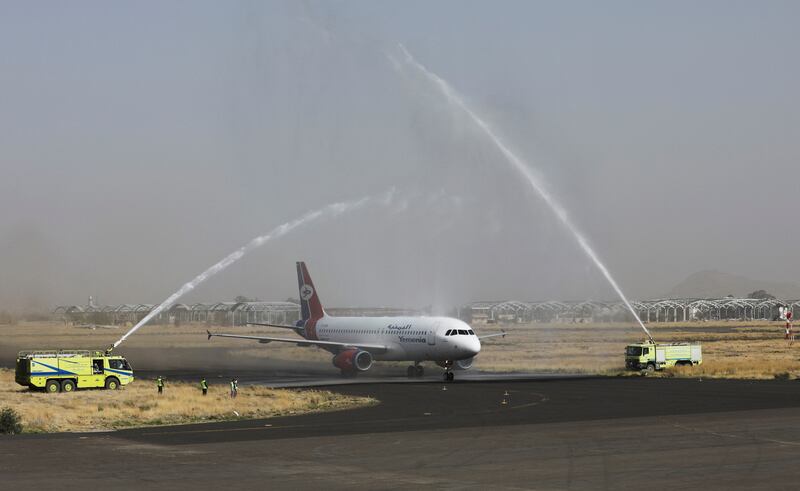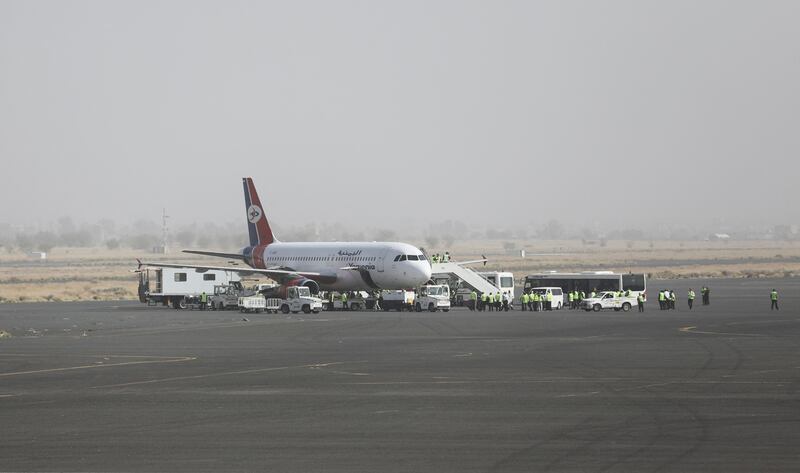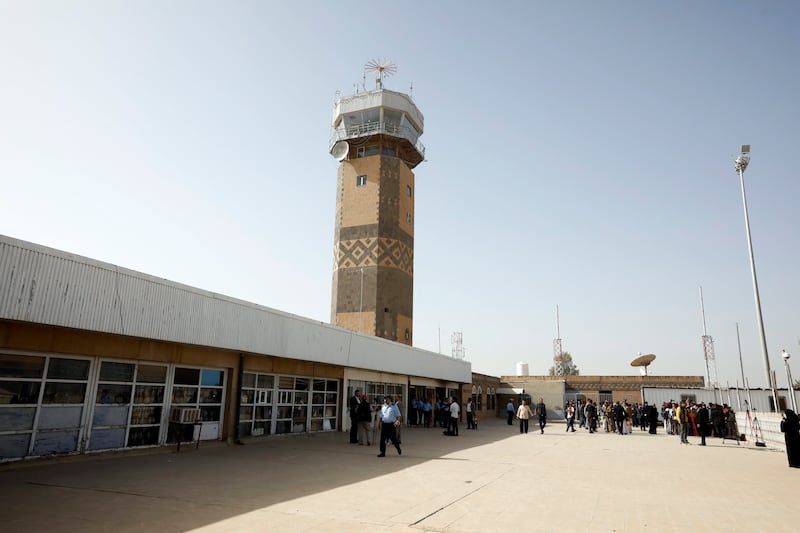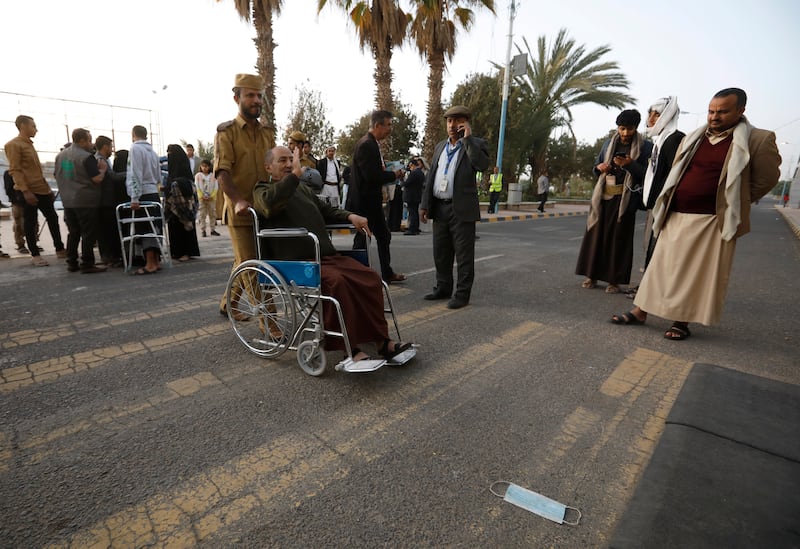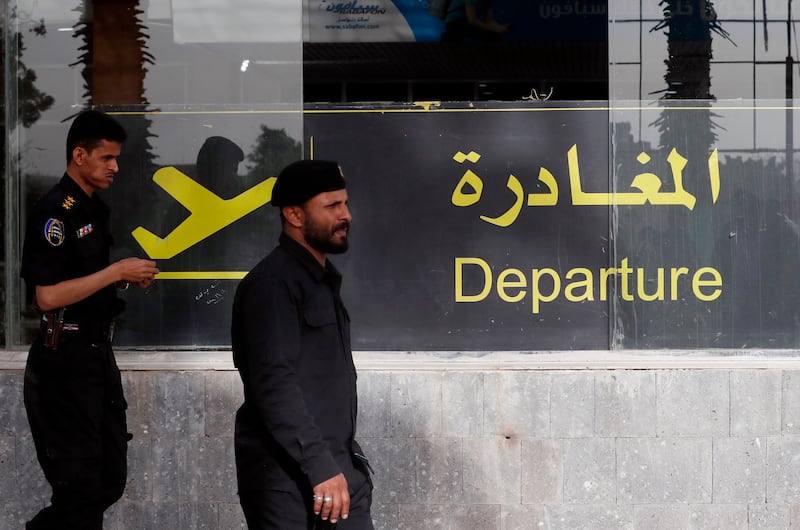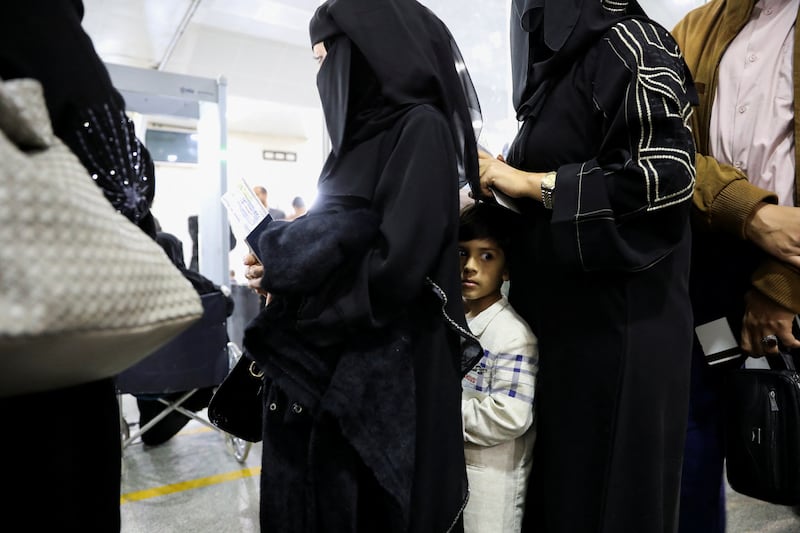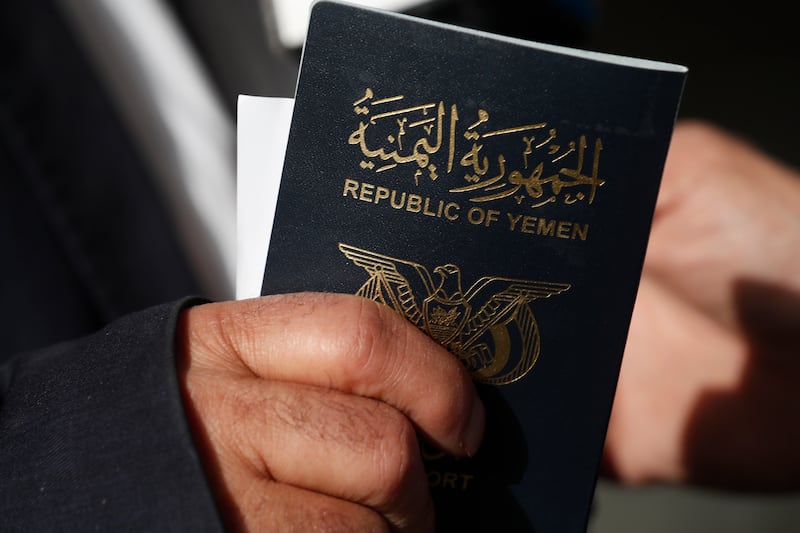The Houthi rebels should release 12 US and UN staff being held 'incomunicado' in Yemen, US Special Envoy Tim Lenderking told reporters on Thursday.
"We condemn the Houthi detention of 12 of our current and former US and UN staff. They're still being held incommunicado."
"This detention ... sends an extremely negative signal. We want to see a demonstration of good faith by the Houthis in releasing these individuals unconditionally."
Mr Lendersking's comments came as both sides in the Yemen conflict agreed to renew a UN-brokered truce for two more months in a bid to pave the way for lasting peace talks.
The US envoy said that a recent trip by Omani officials to the Houthi-run capital of Sanaa had been “crucial” to securing the renewal “at the last moment”.
Speaking during a telephone briefing, Mr Lenderking also hailed efforts by Saudi Arabia to ensure the truce extension.
“The Saudis did a lot of the heavy lifting to get there,” he said.
Mr Lenderking said he felt “confident” about the prospects of a broader peace in Yemen, now in its eighth year of war, thanks to regional support.
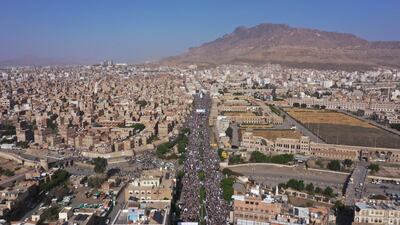
“There are a number of parties such as the Iranians and Saudis, who are generally on opposite sides on many issues, have both welcomed the truce,” he said.
“We need to see Iranian actions mirroring or supporting these words — if we can bring Iran into the regional alignment, then we have a great potential to see progress.”
The UN-sponsored truce began on April 2 and has since been renewed twice in two-month increments. The most recent extension was announced on the day the agreement was due to expire.
The US and the UN had been pushing for a broader six-month armistice but a number of major sticking points prevented that from materialising.
Mr Lenderking said the UN framework agreement addresses challenging issues such as paying civil servant salaries and opening the roads around Yemen's third largest city of Taez, which has been under Houthi siege since 2016.
Under the UN agreement, the Houthis are required to reopen some of the major roads around the city, but they have yet to do so.
“The terms have not been met to the extent we want to see but in the next two months, there absolutely has to be progress,” Mr Lenderking said.
Yemeni observers and analysts agree that the matter of salary payments is slightly more complicated.
“In order to find a mechanism that works to pay salaries, there has to be an account, oversight of that account and revenue sources that allow that account to be filled and mechanisms to pay civil servants,” Mr Lenderking said.
The Houthis have been pushing the Yemeni government to pay salaries according to a 2022 payroll which contains employees working for Houthi-run state institutions.
The head of Yemen's Presidential Leadership Council, Rashad Al Alimi, said his government is willing to pay the salaries but did not provide specifics. The government had mentioned it would make these payments according to a 2014 payroll — that is, before the Houthi takeover of Sanaa and the subsequent war.
